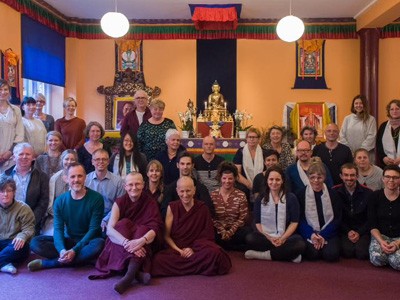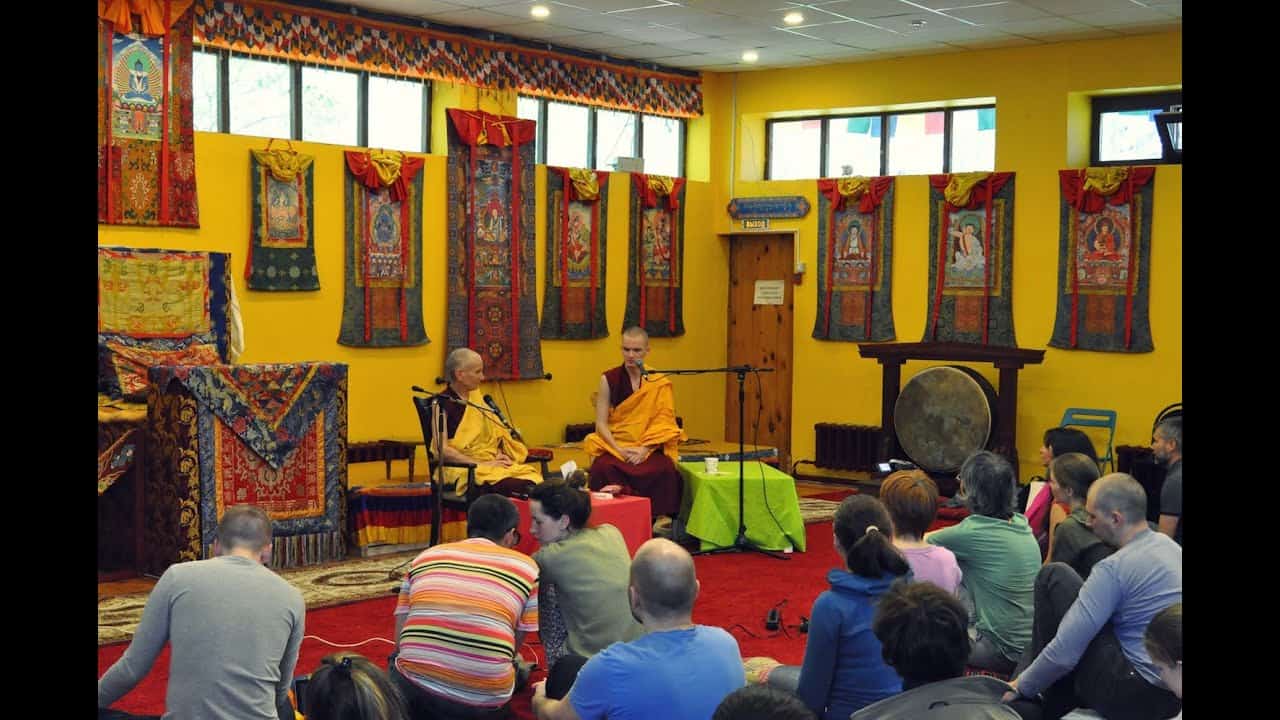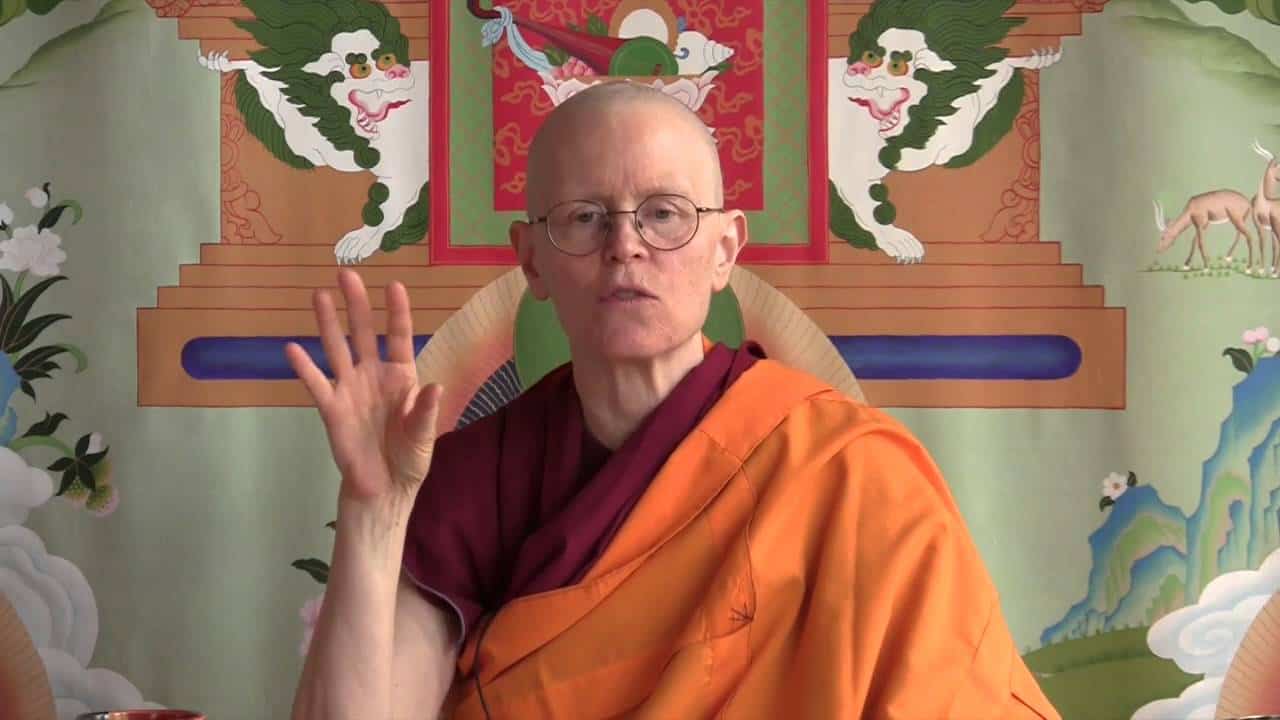We need to remember that we are going to die

Interview for Phendeling Center's digital magazine in Copenhagen, by Julie Relsted.
Julie Relsted: Venerable Thubten Chodron’s teachings in Phendeling gave us brief insights into her impressive knowledge, not only of Buddhism, but also of how we Westerners can learn to integrate Buddhism into our lives. Most importantly, she says, we must remember that we are going to die.
What are your considerations concerning Western people’s trouble integrating Buddhism into their everyday life? What are the problems and the solutions from your point of view?
Often people say their main problem is that they don’t have enough time, but there are always 24 hours in a day, so it’s more a question of priorities and how we choose to allocate our time.
We always have time to chat with our friends, we have time to surf the Internet, we have time to watch sports games. We have time to do all sorts of things like that, but we run out of time when it comes to having a regular daily practice.
So I don’t think it’s a time issue. I think it’s a priority issue. When you set your priorities and if Dharma is really your top priority, then you do that instead of going out at night and being too tired in the morning to get up. Instead, you go to bed early. You sacrifice your TV shows, you sacrifice going out with your friends and get up early to do your practice.
Do you have any suggestions as to why it is so difficult for us to get our priorities straight?
Because people don’t remember that they are going to die. They think that they are going to live forever. And when you think that you are going to live forever, you have lots of time and you think can always practice Dharma tomorrow, because today you are too busy. When we really have the feeling that our life is short, that it was very difficult to have this life, to create the karma to get a precious human life, that this life is rare and precious and it doesn’t last that long, then it becomes much easier to set our priorities. But when we don’t remember that our priorities are often, how can I have pleasure, how can I get money and status?
In Phendeling people practice Buddhism in many different levels. Those of us who are ambitious, but still want to live with our family and so on: What should be our goals?
I think the goals should be the same for everybody if you are a Dharma practitioner. There are two major things: to try to have a higher rebirth, and to aim for the highest good, meaning full awakening. Those are the goals of all Dharma practitioners. The goals are the same whether you are a layperson or a monastic. Our long-term goal is full awakening, but we need many good rebirths in order to get there.
You have been a nun for many years: Can you tell us a little bit about your greatest joys and greatest challenges?
People have asked me that question before and I don’t think like that. I don’t think about what are my greatest joys and what are my greatest challenges. I don’t find that way of thinking very helpful. I find it much more helpful just to do my practice. If you think of joys then you cling to having some fantastic experience. If you think of challenges, then you will focus on all the obstacles: “How will I ever get anywhere?”
Neither of those ways is very conducive for practicing the Dharma. It’s better to just do the practice. Create the causes, wait for the results, and the results will come, when they are ready.
My last question is to ask you if there is something you would like me to ask you?
Yes! I think it is extremely important to study and know what Dharma is. Because with Buddhism coming to the West, there are all sorts of people who think they understand the Dharma, but they haven’t studied it much and they don’t understand it well. Then they start explaining it to others in accordance with what they think and what their opinions are, and that’s very dangerous, because then you lose the liberating Dharma and what you get instead is the opinions of people who are not advanced practitioners.
It is important to not just throw things out because they don’t agree with our ideas. Because if we start saying; “The Buddha didn’t teach this or that because it is old-fashioned” then we are basically saying that we are smarter than the Buddha and that we know the path better than the Buddha. So we have to check: Are we enlightened or not? If we are not enlightened, it’s better to follow the path of an enlightened human being rather than making up your own path.
We have to distinguish between what is culture and what is the Dharma. We can change the cultural things, but we have to really know what the Dharma is. Otherwise we think that certain aspects of the teachings are culture, when they are not.
So we have to work really hard to develop our Dharma intelligence, our sincerity, our open-mindedness, our ability to really think through things and not just depend on believing what somebody else says. We have to develop the quality of a good student.
Original interview: Vi skal huske, at vi skal dø


